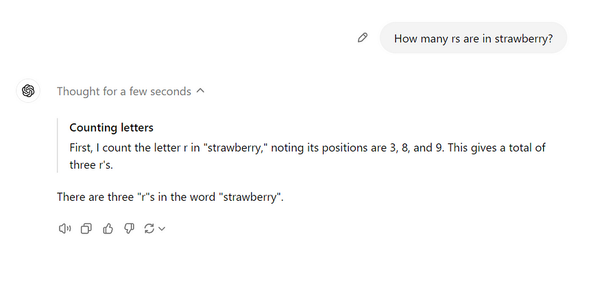The state of the IT hiring market, from the experts on the ground

Is the sky falling? Is the bubble bursting? Are we chicken little, viewing the portents of a vast and illusory threat — or are we the android boy who cried cyborg wolf, loudly broadcasting a very real and impending collapse[1]?
A week ago, I set out to more deeply understand how hiring in the tech industry (derogatory) is really going. To that end, I interviewed over a dozen HR and recruitment professionals, ranging from hiring specialists at recruitment agencies to officers at cybersecurity firms.
Discover:
- The real status of hiring in the tech industry.
- How recruiters are actually selecting their candidates.
- What you can do now to differentiate yourself as an applicant.
- …and whether you should give it up and take up Alpaca wool farming.
Is the hiring market as bad as it seems? (Yes, it is.)
Amazon, Google, Microsoft, and now Intel — there has been a broad swathe of layoffs throughout the tech industry, leaving tens of thousands of talented individuals unemployed. With many tech companies cutting back, there’s unavoidably an overabundance of talent paired with a dwindling supply of work.
You’re not imagining it: The market is much harder.
“It is harder for professionals to get hired in tech in the current market,” confirms Matt Collingwood, Founder and Managing Director of the IT recruitment agency VIQU. “The best indicator of the hiring market being tough for tech professionals is the number of CV applications we receive.
He continues, “In an easier hiring market, fewer tech professionals are ‘actively’ looking for new roles. We saw a 200% increase in applications in the tough months of 2023, compared to early 2022, where we had limited CV applications and were tripping over vacancies.”
It’s an employer’s market — they can be picky about it.
Rachel Lennox, Lead Talent Acquisition Manager at CultureAI notes: “The tech job market has changed recently, becoming tougher for job seekers. We’ve shifted from a candidate-led to an employer-led market, a stark change from the many new roles that defined the post-Covid era.”
“I think the big problem is that there are so many talented individuals who have been laid off or let go, and it’s making it extremely hard to find a job right now,” confirms Brittany Betts, CMO of SmokyMountains. “I think both employees and employers have the right to be picky, but the truth of the matter is that most employers have the ball in their court right now because they have so many applicants to choose from.”
Last year, we received 800 applications for a single business analyst role.
Matt Collingwood, Founder and Managing Director (VIQU)
But Jason Marshall, CMO at Huntress has a slightly different opinion. He notes, “The job market in tech is changing as fast as the industry itself. As the industry matures, competition among qualified candidates has increased. While it might feel like it’s harder to get hired, it’s more about the increasing standards and expectations in tech roles.”
And hiring is taking longer: Expect up to six months.
Sam Wright, Head of Partnerships at Huntr.co, has observed a significant increase in average job search duration “from a couple of months to 3 to 6 months.” As Wright points out, “This trend suggests that the tech job market has indeed become more challenging for applicants.”
In fact, according to Consumer Affairs, the average job search in 2024 took about 5 months — across all industries.
…But why is the market so bad?
“Many companies, having over-hired during and shortly after the pandemic, are now reassessing their workforce in light of economic pressures, leading to more competition for available jobs,” explains Lennox (CultureAI). “The rise of remote work has also expanded the talent pool, allowing companies to hire from anywhere, which intensifies competition.”
So — it’s a combination of over-hiring and increasing globalization. According to Caitlin Wehniainen, a Staffing and Recruitment Expert at OnCueHire, “When economic recession happens, companies tend to outsource tech jobs to nearshore or offshore locations. Onsite jobs get outsourced to places like South and Central America, India, and the Philippines, where skilled tech labor is a fraction of the cost of onsite, US-based talent. When corporations outsource, they lay off onsite workers.”
Still, Wehniainen notes a light at the end of the tunnel: she believes companies “will in-source when the economy stabilizes, inflation and interest rates decrease, and corporate cashflow improves.”
Bottom line:
- While the talent pool has grown (due to layoffs and remote work), the labor market continues to shrink (due to recession and offshoring).
- Consequently, an overabundance of talent has led to employers who are spoiled for choice.
What don’t today’s applicants understand about the hiring process?
Part of the frustration with the modern job industry is the complete disconnect between employees and employers. Not only has the process become automated, it’s also become impersonal. And as a direct consequence, applicants don’t always know what does or doesn’t qualify them for a position.
So, what is it that people just aren’t getting about the current hiring market?
Cashflow is tight, which puts hiring under additional scrutiny.
The story goes: Before, companies felt they could afford to take risks. Now, they’re trying to hire applicants who can take on more work and deliver value throughout the organization.
“Cashflow is tough right now for many companies,” says Wehniainen (OnCueHire). “The cost of borrowing money is higher and cash is less available than it has been prior. Therefore, companies are trying to do more with less manpower. The way to get hired today is to demonstrate your value at all levels of the interview process through clear communication, samples of work, detailed experience that relates to the position for which you are applying, and professional references.
We’ve found that candidates who utilize AI tools to optimize their resumes and prepare for interviews tend to have more success. Additionally, those who focus on building a strong online presence and networking within their industry see better results.
Sam Wright, Head of Partnerships (Huntr.co)
Your relationship with a recruiter matters.
Many of us are used to interacting with recruiters primarily through cold calls and spammy LinkedIn messages. But recruiters actually play quite an essential role today — and you might not be able to get your foot in the door without them [2].
“Lots of applicants see recruiters as interchangeable and do not necessarily see the importance of forming long-term relationships with recruiters,” says Collingwood (VIQU). “Although there are thousands of tech recruiters they can speak to, forming close working relationships with a select number that they keep in regular contact with and nurture long-term means that when a role comes along that meets their skillset perfectly, the recruiter won’t even advertise the role. They will reach out to that applicant and put them forward for the role.”
It’s not just about meeting job qualifications.
Unfortunately, in the modern talent pool, there are a lot of best fits for any given role; when all the technical boxes are checked, the “best” becomes subjective. So, being the best fit doesn’t automatically get you a job — it doesn’t even automatically get you an interview.
“Just because you might be able to do a role, doesn’t mean you’re the best candidate,” says Collingwood (VIQU). “So many applicants will send their CV to every role they believe they can do, and will get frustrated when they’re not getting interviews. Example: We advertised for an IT project management role that needed rail industry experience. A PM with Utilities experience applied and said his skills are transferable, which is true, but when he’s up against three other Rail PMs, he’s got stronger competition. Some applicants take that fact very personally, which is unfortunate and will not help them in their job search.”
And, unfortunately, recruiters can’t always connect — even if they want to.
Corporate job postings attract around 250 applicants. However, many tech recruiters report anywhere from 300 to 400 resumes per posting. While, in an ideal world, every candidate would get personal treatment, it’s becoming increasingly impossible to deliver.
“Many applicants have the idea that they should always receive a call when they apply for a role,” says Collingwood (VIQU). “Unfortunately, it is just not possible when a recruiter receives 100+ applications per role. Last year, we received 800 applications for a single business analyst role.”
But just because you didn’t get a response doesn’t mean that you weren’t considered.
Betts (SmokyMountains) notes regarding her hiring process: “There are a lot of internal discussions that take up a good amount of time. There is also just a lot of really talented candidates applying for positions right now, and when so many apply for one company, it can be hard providing an exact answer. We like to make either our acceptance or rejection notice as personalized as possible, but there are many larger companies that just don’t have the bandwidth to do that.”
Bottom line:
- Companies are being absolutely inundated with job applicants for every position — and that also means they might need a “little help” noticing you.
- And, for the time being, the job application process is likely to remain one-sided.
OK, so how do you stand out from the crowd?
If it isn’t hard skills that matter — and if so many people meet the desired requirements for each job — what can job seekers control? How can applicants put themselves in front of the pack?
Unfortunately, it seems this requires remarkable social acumen and the foresight to tailor-make your career starting about five years ago.
When it comes to specialists vs. generalists, the specialists win.
“Employers are prioritising candidates with specialised skills, moving towards skills-based hiring,” asserts Lennox (CultureAI). “This trend makes it tougher for generalists, as industry-specific expertise becomes more valuable.”
Collingwood (VIQU) has noted the same: “The current hiring market is toughest for generalist techies — those who have not specialised in a particular type of tech or sector. For instance, we have seen the number of CVs we’ve received from generalist IT project managers increase significantly over the last 6 months, whereas specialist IT project manager applications have stayed at the same level.”
He continues, “I would advise applicants to become specialists in their chosen area. They should not stay as a generalist in their skillset as demand is higher with specialists and those with knowledge of cutting-edge technologies.”
Soft skills matter — now more than ever.
Bad news for those who went into tech because we’re bad with people. When everyone’s got the hard skills, the soft skills start to matter even more.
“Applicants today often underestimate the critical value of soft skills in the hiring process,” says Lennox (CultureAI). “Many candidates fail to highlight these skills effectively on their CVs, which is a missed opportunity. As technology advances at a rapid pace, soft skills are becoming increasingly vital. Employers are looking for individuals who can adapt, communicate effectively, and work collaboratively.”
And that’s a bit of a double whammy, because…
Networking and referrals still rule the roost.
“Networking is crucial,” per Lennox (CultureAI), “as many job opportunities can be unadvertised, so referrals can boost your chances of landing an interview. Attending industry events and building connections can open doors that might otherwise stay closed.”
It’s long been estimated that anywhere from 70% to 80% of jobs are never listed. In a 2023 article, Ed Herzog debunked this number — but his survey discovered a full 43% of individuals found their job through what most people would consider networking.
“Build an online presence that is respectful and professional, particularly on LinkedIn,” suggests Wehniainen (OnCueHire), “and keep in touch with your professional network of current and former colleagues and supervisors.
But hey, customizing your CV to your job description could help.
Let’s think low lift, high impact for a minute.
“Employers love to hear practical examples and answers to their questions. Therefore, applicants should use metrics on their LinkedIn profile and their CV,” says Collingwood (VIQU). “Instead of just having ‘Significant experience with budget management,’ the applicant can use numbers or percentages to highlight their achievements. For example, ‘With my extensive budget management skills, I handled a £1.2 million budget over a 12-month project with 25 team members and 8 external stakeholders.’”
Employers are prioritising candidates with specialised skills, moving towards skills-based hiring. This trend makes it tougher for generalists, as industry-specific expertise becomes more valuable.
Rachel Lennox, Lead Talent Acquisition Manager (CultureAI)
He also had a bit of a unique tip: “I’ve heard many CV writers suggest not to use addresses on CVs, but this is a mistake. It helps with an applicant’s searchability. By this, I mean that when recruiters put a CV through their system, it will automatically pull their postcode. That way when the recruiter is searching for a certain skillset in a certain area, that CV will appear in their search results. If there’s no postcode, the applicant is putting themselves at a severe disadvantage.”
Lennox (CultureAI) notes, “Additionally, when crafting your CV, it’s essential to use the language from the job description. Although this may take a little longer, tailoring your CV not only demonstrates that you understand the role but also aligns your experience with what the employer is seeking. Clearly highlighting your relevant skills and experiences will make your application stand out.”
…And, maybe, use the AI. Wright (Huntr.co) noted, “We’ve found that candidates who utilize AI tools to optimize their resumes and prepare for interviews tend to have more success. Additionally, those who focus on building a strong online presence and networking within their industry see better results.”
Bottom line:
- There are many qualified candidates. It cannot be over-emphasized: These candidates have everything the job description is looking for.
- To stand out, you need to be more than the listing is looking for: You need a well-tuned resume with outstanding credentials.
Finally, is an AI really looking through your resume?
In late 2023, CNBC reported that only 12% of hiring managers used AI in their recruiting processes. But when Tidio polled 1,068 professionals, they found the number closer to 65%. As of February 2024, only 25% of HR professionals reported using AI to SHRM, despite USC reporting that 55% of companies were putting money toward AI hiring.
What to make of these numbers?
One possibility is that HR professionals may not realize they’re using AI because it’s backed into the platform that they’re using. Greenhouse has embraced AI to identify and rank candidates, and Workday had to defend itself in federal court regarding its AI screening features. From Workable to Bamboo HR, most recruiting platforms today provide some measure of AI functionality.
Wright (Huntr.co) noted, “In our last round of hires for our startup, we reviewed every application. AI did help us write the job description, come up with interview questions, draft emails, and create scoring rubrics for candidates, however.”
Similarly, Allison O’Brien, Recruiting Team Lead at Huntress, noted that their recruiters review all applicants manually — because they know the bias AI can inject into the process.
“At OnCueHire, we have not [implemented AI],” said Wehniainen (OnCueHire). “But as we speak to thousands of candidates weekly, we have heard of candidates who have gone through AI interviews for the initial screening via Webcam where questions appear onscreen, and candidates are recorded answering those questions and given a certain amount of time to address each question.”
Says Lennox (CultureAI): “There’s no doubt that incorporating automation and AI into the hiring process has become quite standard. Automated filtering based on location or specific skills, along with summarising interview notes, can significantly streamline recruitment. However, I firmly believe that keeping that human touch is crucial. Human interactions allow recruiters to evaluate behavioural traits in addition to technical competencies. In my view, AI will never fully replace the need for human connection in recruitment.”
Bottom line:
- We know that most HR professionals are incorporating AI somewhere in the hiring process—but HR professionals seem to be keenly aware of the bias this can cause. According to HR managers, even if AI tools are being used, applications are also being reviewed manually.
- But it’s unclear as to whether all HR professionals, beyond those we interviewed, are aware of how AI is being utilized throughout the process—a tremendous gap between self-reported AI use and known AI use, as well as known AI integration into the broadest HR tools, could imply that HR professionals aren’t strictly aware of all the AI bias involved.
Key takeaways and final thoughts
There are many qualified candidates out there. If you’re looking for a job, you’re one of them. Imagine going against a scope of a dozen identical resumes. Now imagine that a dozen of those resumes are better.
How do you stand out?
The answer appears to be a mix of networking, soft skills, and working directly with hiring managers and recruiters to improve your applications.
And bad news for those who multi-classed early: Above all, hiring managers almost unanimously agreed that a generalist resume is a problem—you need to be a specialist to get anywhere in today’s market.
Get more information like this from me, a Real Human Bean, by signing up for my newsletter.
Footnotes
[1] I always thought calling someone “the boy who cried wolf” was a bit of a bum rap; I mean, he’s right eventually. His only crime is being early.
[2] You might think: Of course, recruiters say that recruiters are valuable. Generally, I wouldn’t disagree. But there are reasons why recruiters might be more useful today than they were previously: e.g., the absolute wealth of applicants for each position has made it nightmarishly difficult for internal departments to manage their own job listing.




